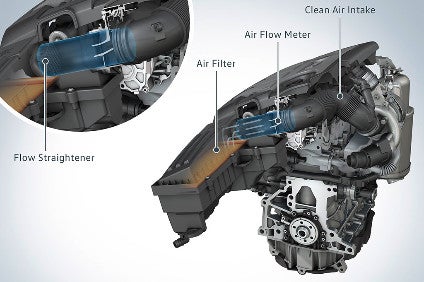
New Volkswagen CEO Matthias Mueller faces a crucial meeting on Wednesday (13 January) with US regulators to discuss ways out of the emissions-cheating crisis, a day after the California Air Resources Board (CARB) rejected the automaker's initial proposed engine fix.
According to Bloomberg, California said the automaker's December recommendation for how to fix two-litre diesel engines was "incomplete." VW said it would present a reworked plan to the US Environmental Protection Agency (EPA) at the meeting in Washington.

Discover B2B Marketing That Performs
Combine business intelligence and editorial excellence to reach engaged professionals across 36 leading media platforms.
About 480,000 diesel cars need a fix. The EPA said Tuesday it agreed that VW's plan can't be approved. Volkswagen set aside EUR6.7bn (US$7.3bn) in the third quarter to help pay for the crisis and has acknowledged this won't be enough.
"The message from the regulators to VW couldn't be more clear — you need to come up with a better plan," Frank O'Donnell, president of Clean Air Watch, a Washington environmental group, told Bloomberg. "VW has mistakenly thought it could resolve this on the cheap."
On its website, the state said it determined that there was "no easy and expeditious fix for the affected vehicles".
"Volkswagen made a decision to cheat on emissions tests and then tried to cover it up," Mary Nichols, chairwoman of the state board, said in an e-mailed statement to Bloomberg. "They need to make it right."
Volkswagen responded that it had asked California last month for an extension to submit additional information and data about the turbocharged direct injection, or TDI, diesel engines. "Since then, Volkswagen has had constructive discussions with CARB, including last week when we discussed a framework to remediate the TDI emissions issue," VW told Bloomberg in an e-mailed statement.
The California board said it and the EPA would continue to evaluate VW's technical proposals.
Mueller is scheduled to meet with EPA chief Gina McCarthy and members of Congress on Wednesday morning.
Mueller met Tuesday with representative Tim Murphy of Pennsylvania, the House Republican leading a congressional inquiry into the emissions cheating. Murphy, chairman of the Energy and Commerce Committee's investigations subcommittee, said that he urged Mueller to deliver documents that he said have been tied up by German privacy rules.
"I made it clear I want those documents," Murphy said in an interview, adding that VW has already given the panel a lot of other information. He said he wants to find out what happened and make sure it's corrected. Murphy said he's not pushing for a debilitating fine on Volkswagen. "I don't think anybody wants to see the elimination of the company," he said, according to Bloomberg.
In Europe, the company's proposed fix for 8.5m diesel engines was approved a month ago. For most vehicles in Europe, software upgrades will suffice, while others will get a tube with mesh on one end to regulate air flow. VW estimated that repair would take less than an hour to complete.
In the US, beyond developing an effective repair for each of the three types of non-compliant I4 engines, VW must document any adverse impacts on vehicles and consumers. VW will also have to fix about 85,000 Volkswagen, Audi and Porsche three-litre engines, Bloomberg noted.
Because the emissions scandal centres on Volkswagen's use of a sophisticated 'defeat device' to skirt regulations, any proposed remedy will need to be tested by California and EPA technicians before the plan is rolled out to consumers.
Rebecca Lindland, senior analyst at Kelley Blue Book, said: "The rejection is not a surprise. Volkswagen has been working on an additional potential fix involving the catalytic converter. Those details have not been worked out. The reasons for the rejection involve needing more details and specifications. This is not a major setback. If they present them with another plan and that's rejected, we can start to see some real concern. However, it's unfortunate because it continues to delay getting consumers the answers and solutions they want, need and deserve."






